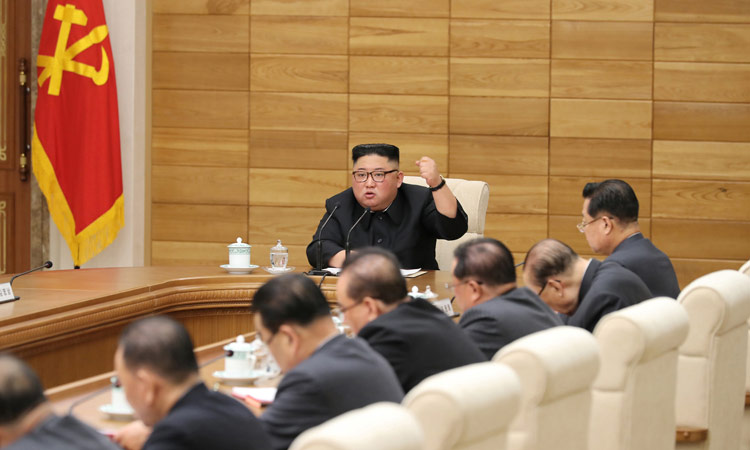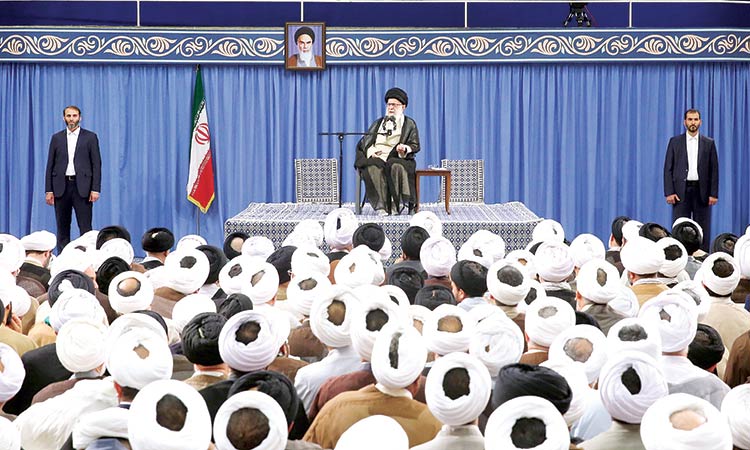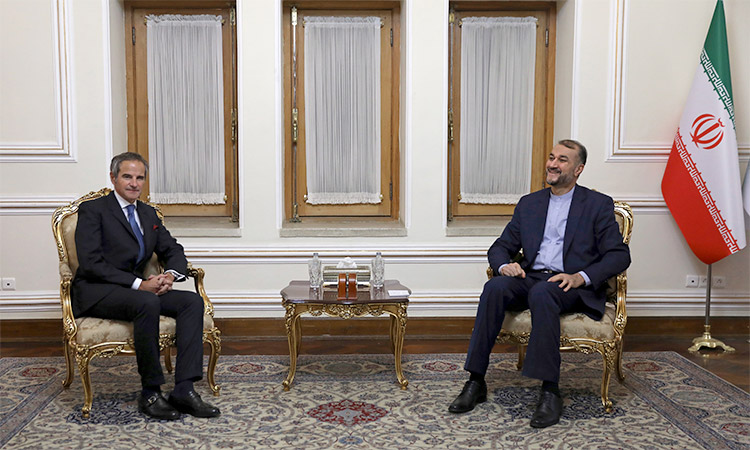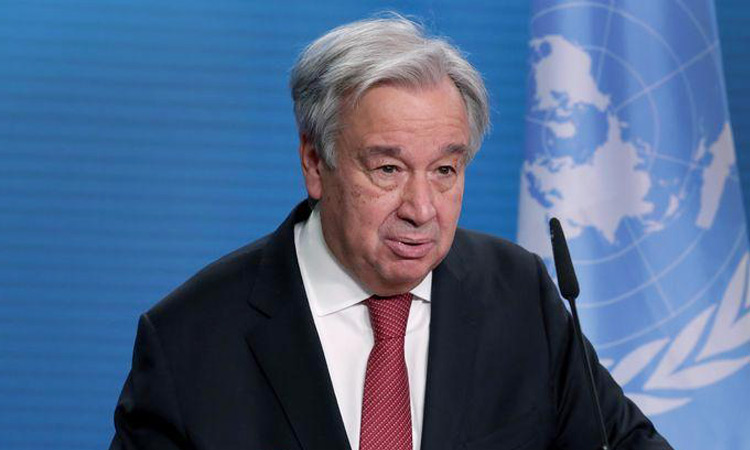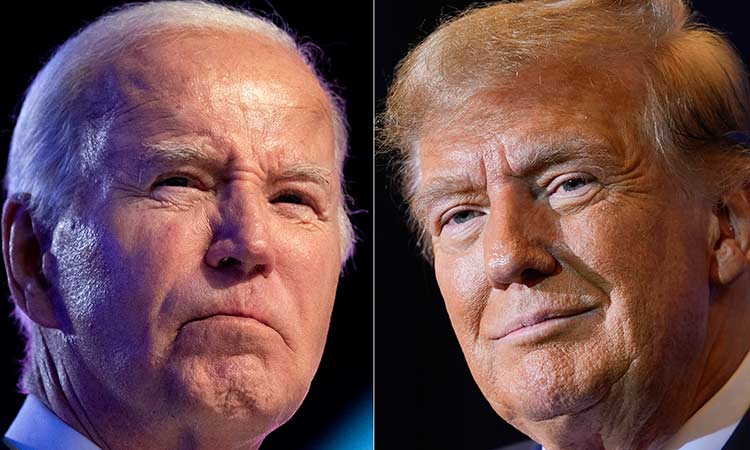Mistrust of US underpins revival of Iran N-deal
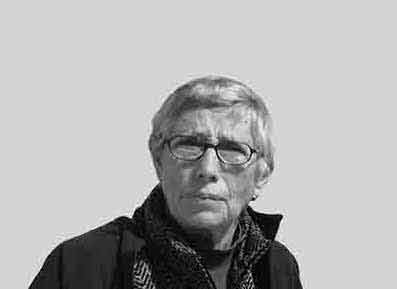
Michael Jansen
The author, a well-respected observer of Middle East affairs, has three books on the Arab-Israeli conflict.

Abbas Araghchi (centre), political deputy at the Ministry of Foreign Affairs of Iran, leaves the ‘Grand Hotel Wien’ after the closed-door nuclear talks in Vienna on Friday. Agence France-Presse
The official’s remarks were the first positive comments made by a member of the Biden administration since the Vienna talks began. He also claimed President Joe Biden gives this issue high priority. This seems to be a change in tone after more than three months of procrastination although Biden has repeatedly pledged to rejoin the JCPOA.
The official asked, Is it “possible that we’ll see a mutual return to compliance in the next few weeks, or an understanding of a mutual return to compliance? It’s possible, yes. Is it ikely? Only time will tell. Because as I said, this is ultimately a matter of a political decision that needs to be made in Iran” to return to compliance as defined in the JCPOA. According to him, Iran has not said what it will do to return to compliance.
The aim of the official’s briefing — which has been dubbed “lawyerly” — appears to prepare the way to blame Iran if the Vienna talks fail to close the gaps between the sides.
Iran needs to return to enriching uranium with older centrifuges to 3.67 purity in order to create a limited stockpile, export excess uranium and uranium enriched to 20 and 60 per cent, and allow UN experts full access to all sites. Iran is, reportedly, dragging its feet over its installation of advanced centrifuges barred by the deal. This is understandable as it is said the US wants these to be destroyed rather than stored in warehouses. Finally, Iran wants a guarantee that the US will not be able to withdraw from the deal again.
Earlier this month, Iran’s chief nuclear negotiator Abbas Araghci said the EU-brokered negotiations have been “moving slowly.” This is because Iran, Britain, France, Germany, Russia and China, signatories of the JCPOA, and the US, which is not, “have started to write texts in some areas.” He said that “we will continue to negotiate until the two sides positions come close to one another.” He revealed that agreement has been reached on the energy sector, automobile manufacture, insurance, and banking although talks continue on most of these issues. He argued sanctions on individuals, including the supreme guide, Ayatollah Ali Khamenei, must also be lifted.
If the Biden team continues to insist on sanctions unacceptable to Tehran, it will blame the failure of the talks on Washington but the tame global media will almost certain accept the US claim that Iran would be responsible.
Iran’s official demand is for the lifting of “all” US sanctions although the US has deemed this is “unacceptable.” Therefore, the success or failure of the Vienna negotiations depends on agreement on how many and what sanctions are to be lifted.
Both the Biden administration and Iran’s moderate faction headed by outgoing President Hassan Rouhani are under strong pressure to kill the JCPOA from respective hardliners who opposed, and continue to reject, the deal. In the US, the anti-Iran camp comprises hawkish legislators, lobbies, and pro-Israeli organisations; in Iran the anti-JCPOA-anti-US camp consists of commanders of the Revolutionary Guards Corps, parliamentarians, and some clerics. In the US, 60 per cent of the public favour the JCPOA; in Iran backing for the deal has fallen to the low 30s.
Members of the Iranian elite and the public do not trust either the US, which abruptly abandoned the deal, or Europe, which did not seriously seek to evade US sanctions in order to provide Iran relief from measures which dramatically cut its oil exports, contracted its economy, and punished Iranians by denying them jobs and essential imported goods, services, and medical supplies. Sanctions have become increasingly harmful as Covid has ravished entire communities.
Unfortunately, Iranian foreign minister Javad Zarif, the champion of the deal, has lost the full confidence and crucial backing of Ayatollah Khamenei, without which Iran would never have signed the JCPOA, adhered to compliance for a full year after its abandonment by the US, and agreed to ongoing negotiations which will require compromises on both sides if the deal is to be revived.
Khamenei is annoyed with Zarif due to the leak of portions of a recorded seven-hour confidential interview with a think tank collecting material on the last decade of the Iranian revolutionary regime. In particular, Zarif frankly and openly criticised the Quds Force of the Revolutionary Guards, and its commander General Qassem Soleimani, for making foreign policy by intervening militarily in the affairs of other countries. Zarif claimed Soleimani rejected the JCPOA and attempted to convince Russia, one of its signatories, to torpedo the deal. Zarif’s criticism of Soleimani crossed a “red line” for many Iranians and particularly for Khamenei. Since his assassination by a US drone strike in Baghdad in January 2020, Soleimani has become a national hero and, even, a saint. Zarif has been obliged to apologise to the Soleimani family for his lack of sensitivity.
Khamenei has lashed out at Zarif, without naming him, by calling his remarks about the military’s influence in politics and foreign affairs a “big mistake.” This assessment has weakened Zarif at a crucial moment in the JCPOA negotiations. At his insistence, Iran refused to talk directly to the US and insist the negotiations take place among the remaining signatories working at one venue and the outlier US contributing from another site via a European Union mediator.
This modus operandi shamed and humiliated the US for its abandonment of the deal.
Khamenei’s criticism could very well veto Zarif as a presidential candidate nominated by the moderate camp, particularly if there is little progress in the Vienna talks or they collapse.
A former revolutionary himself, Zarif has, since 2003, been an advocate of a “Grand Bargain,” a plan to resolve all issues between Iran and the US, where he received his university education. Zarif and his US counterpart, John Kerry, played major roles in the formulation of the JCPOA, signed in mid-2015 and implemented in mid-January 2016. As number two in the Obama administration, Biden also has a stake in reviving its major international accomplishment as does Khamenei, who is the ultimate authority in Iran.

